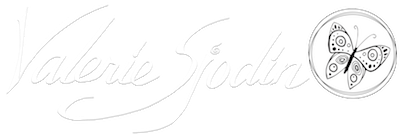Doodling: A Beneficial Visual Language
I've always thought of doodling as a pleasant past time at a minimum. Personally, for me it's been more than that. Doodling is a stress reliever; it makes waiting more pleasant, it helps me listen, and sometimes helps keep my mouth shut (not a bad thing).
Here's a doodle border I did on the airplane showing four steps.
Step 1 is at the bottom of the illustration.
I will likely use this or a variation of it in a journal, and add color.
A few years ago when the school I taught at was closing, the stress level was very high and I had a hard time winding down at night. So when I got in bed I would put music and doodle. It was incredibly helpful.
Doodling is often what I do to help with artist's block. It just gets me unstuck. If it is ugly, it doesn't matter. If it turns out surprisingly good, I can use the doodle, copy it into one of my journals or build on the idea is sparks. Doodling allows me to explore ideas, brainstorming on paper.
Sometimes I doodle when praying: visual prayer. If words don't express what is inside or I'm finding it hard to listen to God, praying while doodling opens that part of me up. It can be a kind of visual listening without me putting my expectations or agenda on the outcome. After I'm done I can look at it and ask what it is saying. That's when the words and meaning often come.
I know some people don't doodle, and that's fine, but I think visual learners tend to doodle and benefit from it. We're doing a section on doodling in the upcoming art journaling workshop, so I decided to look up the word in the dictionary to get a fuller and clearer definition of the meaning. When I looked up the word "doodle" I was disappointed, and a little surprised, to find the definition so negative. Here is the definition according to the dictionary on my computer dashboard:
doo
dle
|ˈdoōdl|
verb
[
intrans.
]
scribble absentmindedly
:
he was only doodling in the margin.
• engage in idle activity; dawdle : they could plan another attack while we're just doodling around.
noun
a rough drawing made absentmindedly.
DERIVATIVES
doodler |-d(ə)lər| nounORIGIN early 17th cent. (originally as a noun denoting a fool, later as a verb in the sense[make a fool of, cheat] ): from Low German dudeltopf, dudeldopp ‘simpleton.’ Current senses date from the 1930s.
Then I researched further and came across this short video on TED about Doodling. Wow, I thought, I knew it! Sunni Brown teaches visual language and doodling to adults in the workplace. Sunni says, "Doodling has a profound impact on the way that we can process information and the way that we can solve problems." She claims, "doodling is an incredibly powerful tool, and it is a tool that we need to remember and to re-learn." Click on the link to experience her talk on doodling:
Sunni Brown: Doodlers, unite!
http://www.ted.com/talks/sunni_brown.html
I like Sunni's definition of doodling:
"Doodling is really to make spontaneous marks to help yourself think."
"…it can be leveraged as a portal through with we move people into higher levels of visual literacy. My friends, the doodle has never been the nemesis of intellectual thought. In reality, it is one of its greatest allies."

